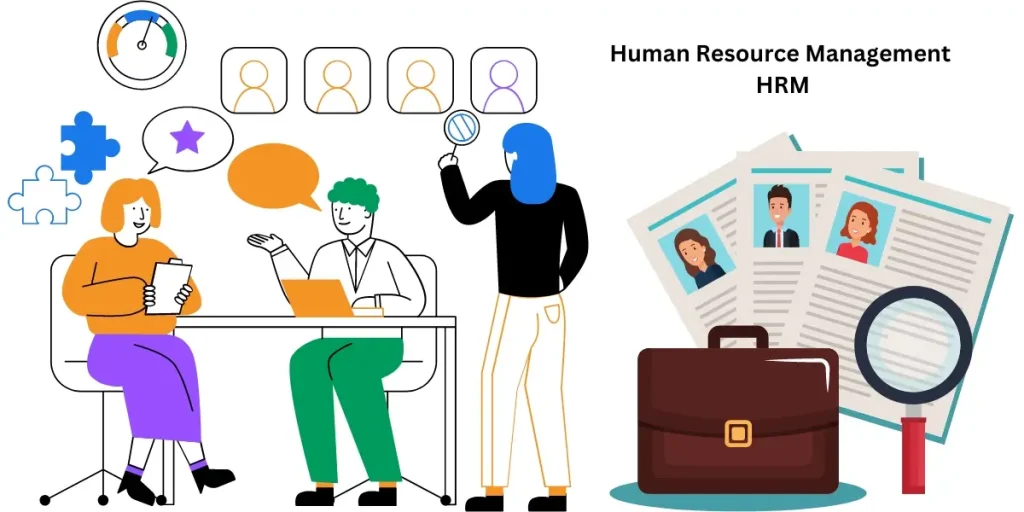What is Human Resources Management (HRM) Software?
Human Resources Management (HRM) Software plays a critical role in modern organizations. This software is designed to streamline various HR tasks, automate processes, and manage employee data efficiently. With Human Resources Management (HRM), companies can centralize their HR operations, reduce paperwork, and ensure seamless communication between HR personnel and employees.
Key Features of Human Resources Management (HRM)
An HRM offers a wide array of features that improve the efficiency of human resource management. These key features include:
- Employee Data Management: HRM systems store and organize employee data, making it easier to track performance, payroll, and personal details.
- Payroll Management: Automating payroll processes reduces errors and ensures timely salary disbursement.
- Attendance and Time Tracking: This feature allows companies to monitor employee working hours, leaves, and overtime accurately.
- Recruitment and Onboarding: HRM assists in automating recruitment, tracking applications, and managing the onboarding process.
- Performance Management: Through Human Resources Management (HRM), managers can set goals, track employee progress, and conduct performance reviews more effectively.

Benefits of Using HRM
Implementing an HRM brings numerous advantages to businesses. Here are some key benefits:
- Improved Efficiency: Automating manual HR tasks frees up time for HR professionals to focus on strategic initiatives.
- Cost Reduction: By eliminating the need for extensive paperwork and manual data entry, HRM reduces operational costs.
- Data Accuracy: Automated systems minimize human error, ensuring the accuracy of records, payroll, and compliance reports.
- Compliance Management: HRM helps companies stay updated with labor laws and regulations, reducing the risk of penalties.
- Employee Self-Service: Employees can access their personal information, request leaves, and view pay stubs, improving transparency and engagement.
Why Your Business Needs Human Resources Management (HRM)
In today’s competitive market, every business, regardless of size, can benefit from HRM. It enhances decision-making, improves employee satisfaction, and ensures smooth HR operations. Companies looking to streamline their processes and grow efficiently should consider investing in HRM solutions.
Conclusion
In summary, Human Resources Management (HRM) Software is an essential tool for modern businesses. It not only simplifies HR processes but also contributes to the overall success of an organization. With features like employee data management, payroll automation, and performance tracking, HRM is a must-have for businesses aiming to stay competitive in today’s fast-paced environment.
Why do you need this Human Resources Management (HRM) Software?
Human Resource Management (HRM) software is essential for modern businesses for several reasons:

1. Streamlined HR Processes
HRM software automates and streamlines various HR functions, such as recruitment, onboarding, payroll, performance management, and employee record keeping. This efficiency reduces the time and effort required for manual processes, allowing HR teams to focus on strategic initiatives.
2. Improved Data Management
HRM software centralizes employee data in a secure and accessible database. This allows for easy tracking and retrieval of information, such as personal details, job history, and performance records. Improved data management helps ensure compliance with legal requirements and simplifies reporting.
3. Enhanced Recruitment and Onboarding
With Human Resources Management (HRM) software, businesses can manage job postings, applicant tracking, and interview scheduling more effectively. The onboarding process can also be streamlined, ensuring new hires have access to necessary training materials and documents, which accelerates their integration into the company.
4. Performance Management
HRM software provides tools for setting employee goals, tracking performance, and conducting evaluations. This enables managers to give timely feedback and support employee development, which can lead to improved productivity and job satisfaction.
5. Time and Attendance Tracking
Automating time and attendance tracking helps prevent errors and reduces the administrative burden on HR. Employees can clock in and out electronically, and managers can easily monitor attendance patterns, helping to identify potential issues like absenteeism.
6. Employee Self-Service
Many HRM systems include self-service portals that allow employees to access their information, request leave, and update personal details. This not only empowers employees but also reduces the workload for HR staff, leading to increased efficiency.
7. Compliance and Risk Management
HRM software helps organizations comply with labor laws and regulations by maintaining accurate records and generating necessary reports. This reduces the risk of legal issues and fines, protecting the organization’s reputation and finances.
8. Data-Driven Decision Making
The analytics and reporting capabilities of HRM software provide insights into workforce trends, employee satisfaction, and overall HR performance. This data-driven approach enables businesses to make informed decisions regarding staffing, training, and employee engagement.
9. Cost Savings
While there may be an initial investment in HRM software, the long-term savings from improved efficiency, reduced errors, and better compliance can be substantial. Automating HR processes can also lead to fewer HR staff requirements.
10. Scalability
As businesses grow, HRM software can scale to accommodate new employees and additional HR functions. This flexibility ensures that HR processes can evolve alongside the organization without significant disruptions.

In conclusion, implementing HRM software is crucial for organizations looking to enhance their HR functions, improve employee satisfaction, and drive business success. It enables HR professionals to focus on strategic initiatives that contribute to organizational growth rather than getting bogged down by administrative tasks.
